In pandemic times, many role-playing tables were held virtually as a way to keep campaigns that were already running. These tables use a series of digital features that try to emulate the feeling of playing with your friends around a table.
In this text, I will comment on some of these features: the first three are free to use, the last three features require the purchase of a license or charge a subscription. Not that they are necessary to play RPG safely in virtual media, but I believe that in the current health context, and with the growing number of groups streaming their sessions, it might be interesting to raise the pros and cons (in my humble opinion) about these tools.
Discord
Pros: free resource and well known by the gaming community, it can be used both on computers and cell phones.
Cons: need to know how to configure the server since it doesn't have native resources to play RPG; need to purchase rulebooks and adventures separately.
Discord can be a great tool to simply play RPG with your friends.
Bots to play RPG on Discord
You just need to know how to configure a server and which bots use some resources that facilitate your campaign, here are the names of some of them.
Smoogle Translate: This bot can translate all messages that other bots will post on the server to other languages, which makes the game more accessible for people who don't speak English.
Feyre: This bot allows dice rolling; checks information on D&D feats, monsters, spells, and classes; allows you to elect a person as Master/Storyteller allowing secret dice rolls; And the best feature: allows you to draw a card in the famous Deck of Many Things! That's right, that deck that allowed Ellywick Tumblestrum to transform into the most powerful bard in the multiverse.
Avrae: Created in partnership with the developers of the D&D Beyond website, this bot basically has all the features present in Feyre. Consequently, it has features that integrate with the Roll 20 and the D&D Beyond. If you learn to use the features of this bot, you can customize it to play with systems other than D&D. This bot even allows you to use battle grids and automate player character sheets if you have a little time to learn the commands it has. Remember that to use maps or battle grids, you will have to go to the Avrae bot developers' website.
Masquerade Bot: Similar to Avrae, but designed to play Vampire the Masquerade.
SavageBot: designed to bring Savage Worlds resources (Deadlands, Weird Wars, Savage Pathfinder, etc) to Discord.
Octave, Rythm
, Groovy
: bots that let you share music and create moods for your narratives.
ROLL 20
Pros: free resource, features some automations and access to basic features of some RPG games. It can be accessed from any internet browser program, has integrated voice and video chat. By purchasing some resources, the matches are organized faster.
Cons: Some features are only available when paying a subscription or buying modules and virtual books.
The great attraction of this kind of feature is that it is not necessary to program all those automations that Discord requires. As a resource to be used by more casual campaigns and novice players, it is well worth it.
Among the free features are access to some basic rules of RPG's like D&D, the possibility to share battle maps and the use of images to simulate miniatures and some customizations if you are willing to create character sheets and antagonists / monsters manually.
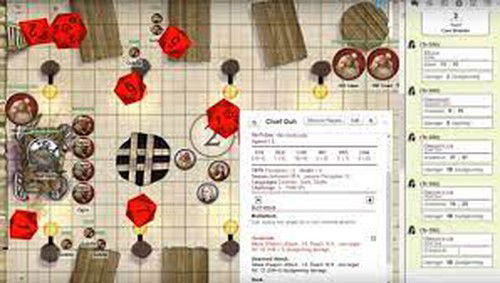
If you are willing to purchase the modules and virtual adventures, the maps and automations needed to narrate your RPG campaign are incorporated into your account, making it easy to prepare the games for the Master/Narrator.
Astral Tabletop
This resource is very similar to Roll 20. However, I have not used it more than twice, so I only mention it honorably in this text. I invite readers who like this feature to leave your thoughts in the comments section at the end of this article.
Talespire
Pros: affordable resource, it has a collaborative and very generous community in terms of content sharing
Cons: all players need to have the program installed on their computer, It doesn't have rule system automations or character sheets, and also doesn't have a group chat, which is under development.
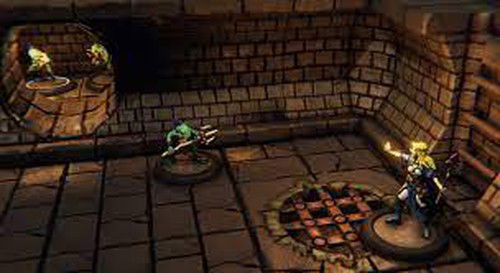
Talespire is a feature that can be purchased via Steam that allows you to create maps and 3D scenarios to use in your game sessions. The graphics features are rich, allows the virtual use of thumbnails and various maps without much cost or effort: just copying maps from other users of the resource can save you time in preparing your game.
As it is only a resource for the elaboration of scenarios, perhaps this one ends up being considered by some to be less advantageous. However, I believe it adds a lot to any role-playing session by allowing the use of scenarios and miniatures by anyone who can pay its cost and have access to a computer.
Foundry
Pros: standalone platform to play several RPG systems, including resources in other languages.
Cons: high cost for players, not necessarily the resources available on the platform pays the copyright to game developers and publishers.
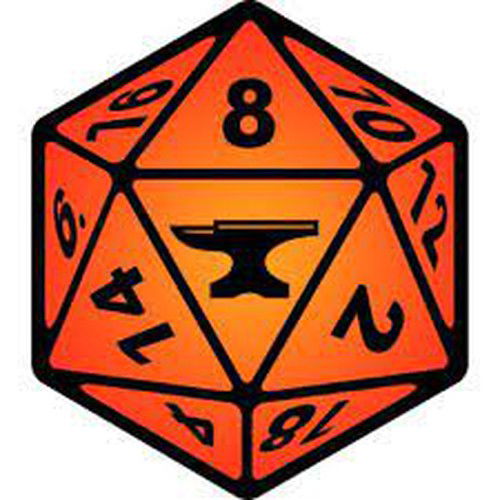
This feature divides opinions regarding its functions and facilities it presents (they are similar to the features present in Roll 20). Also, it has a steep cost, and the lack of official support from RPG game publishers, which makes room for content piracy.
If you have enough resources to invest in the hobby and want to use the automatic features of a more robust platform than the free version of Roll 20, this may be an option for you.
Fantasy Grounds
Pros: autonomous platform to play numerous RPG systems, with modules licensed by game publishers.
Cons: high cost for players, there are no modules and books available in soma languaes.
This feature can be purchased by Steam, in the same way as Talespire, making life much easier for players who cannot necessarily go shopping in dollars or with credit cards (remember that Steam allows payments by bank slips). Although only the Master/Narrator has a need to purchase the program license, this is not necessarily a cheap resource, which can make it difficult for players to access it.
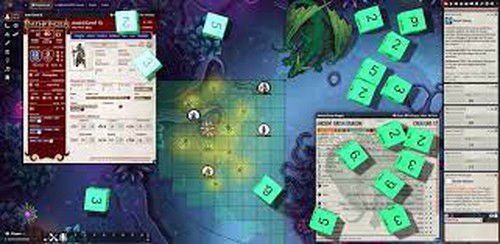
All automations present in the other resources are present in this one (dice rolls, virtual character sheets integrated with automatic rolls...).
With this program, you have the possibility to purchase RPG modules and books with low values through the Steam platform itself. I just emphasize that this material is not available in some languages.
Just like the other resources, when you purchase new modules and adventures, all the necessary sheets, maps and images for your game are added to your account, which facilitates the preparation of games for the Master / Narrator
Conclusion
That's my review of the online resources I've found and used on my Virtual RPG meetings, and I hope it helps you make good decisions on which ones might be useful for your campaign.
Thanks for reading!

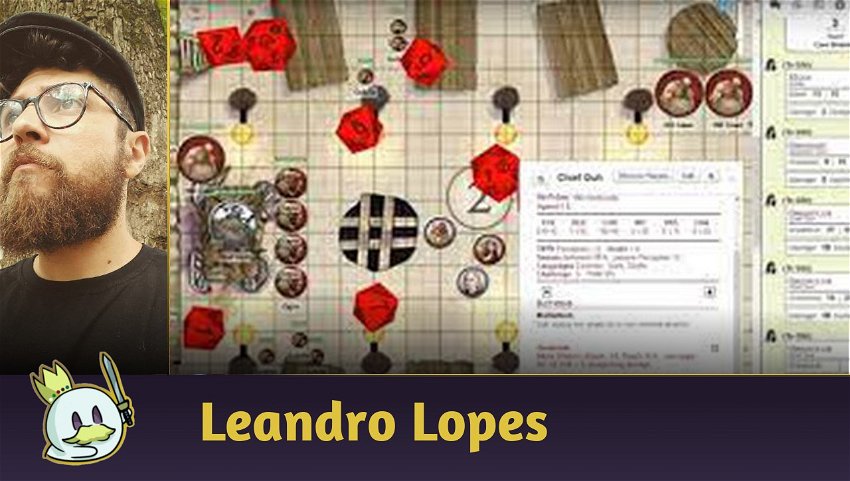







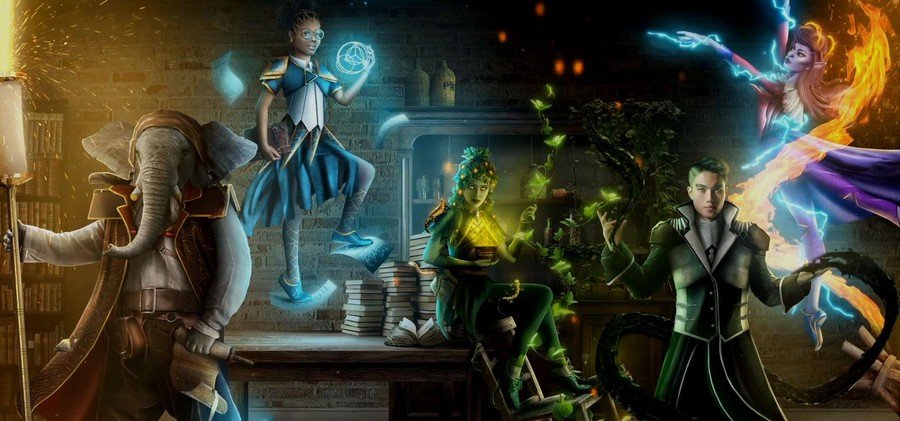
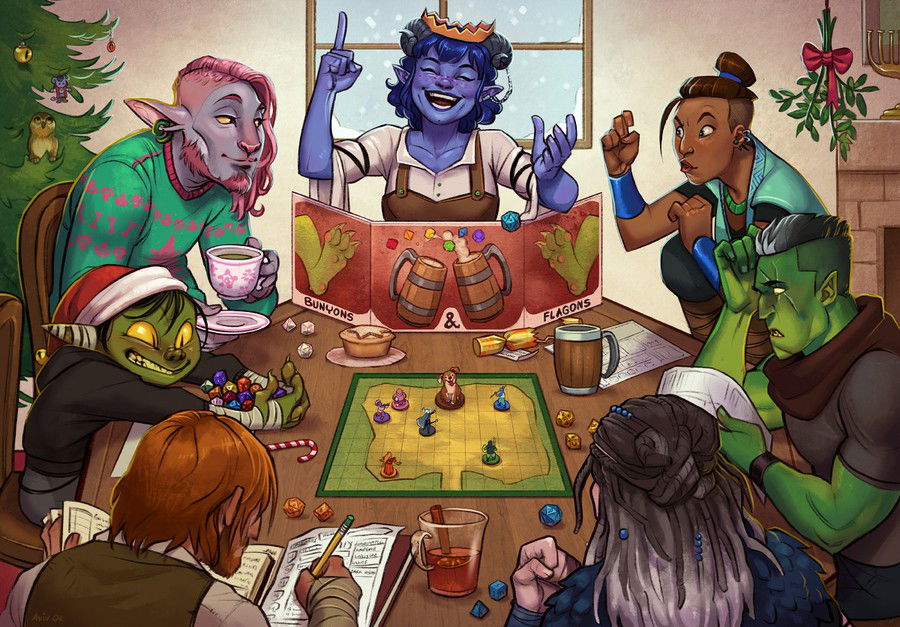



— Comments 0
, Reactions 1
Be the first to comment